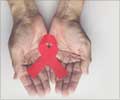People with mental illness are more likely to have been tested for HIV than those without mental illness, according to a new study.

The current Penn-led study adds precision to earlier research by reporting on HIV-testing rates according to specific mental health diagnoses; previous studies did not differentiate persons with, for example, depression, bipolar disorder, and schizophrenia spectrum disorder.
The researchers found that 15 percent of respondents reported a psychiatric disorder. Of these, 89 percent had symptoms of depression and/or anxiety, 8.5 percent had bipolar disorder, and 2.6 percent had schizophrenia spectrum disorder. Among persons reporting at least one mental illness, 48.5 percent had been tested for HIV. The 48.5 percent rate compares to a testing rate of 35 percent among those without mental illness. More specifically, 64 percent of persons with schizophrenia, 63 percent of persons with bipolar disorder, and 47 percent of persons with depression and/or anxiety reported ever being tested for HIV.
"Our study shows that persons with mental illness and/or their care providers recognize that they are at higher risk and should be tested," said senior author Michael B. Blank, PhD, associate professor in Psychiatry at Penn and co-director of the Penn Mental Health AIDS Research Center. "However, by no means we should be complacent since these results may in large part be due to individual vigilance. The fact is there are few formal prevention and screening efforts targeted at this at-risk population. In light of the fact that mentally ill people are more likely to engage in risky behavior, mental health providers should consider routinely offering HIV/AIDS testing, something that does not typically occur now."
HIV infection and mental illness are often co-occurring health conditions, with nearly half of persons living with HIV having a psychiatric disorder while between 5-23 percent of those with mental illness are infected with HIV.
In addition, the study found that persons aged 25-44, women, racial and ethnic minorities, individuals who are windowed/divorced/separated, those reporting excessive use of alcohol or tobacco, and persons with HIV risk factors were significantly more likely to be tested for HIV than their counterparts.
Advertisement
"Our finding that persons with mental illness were tested for HIV at a higher rate than those without mental illness is encouraging and consistent with previous analyses," said lead author Baligh R. Yehia MD, MPP, MSHP, assistant professor of Medicine at the Perelman School of Medicine at the University of Pennsylvania and director of the Penn Medicine Program for LGBT Health. "However, the large number of people with mental illness who still have not been tested necessitates increased public health prevention efforts, particularly in light of the increased HIV risk in this population."
Advertisement
Source-Eurekalert















